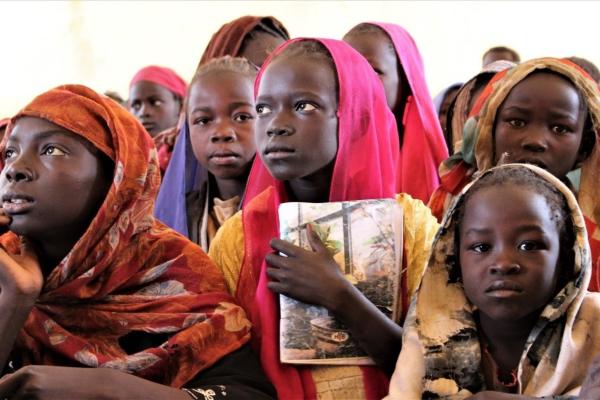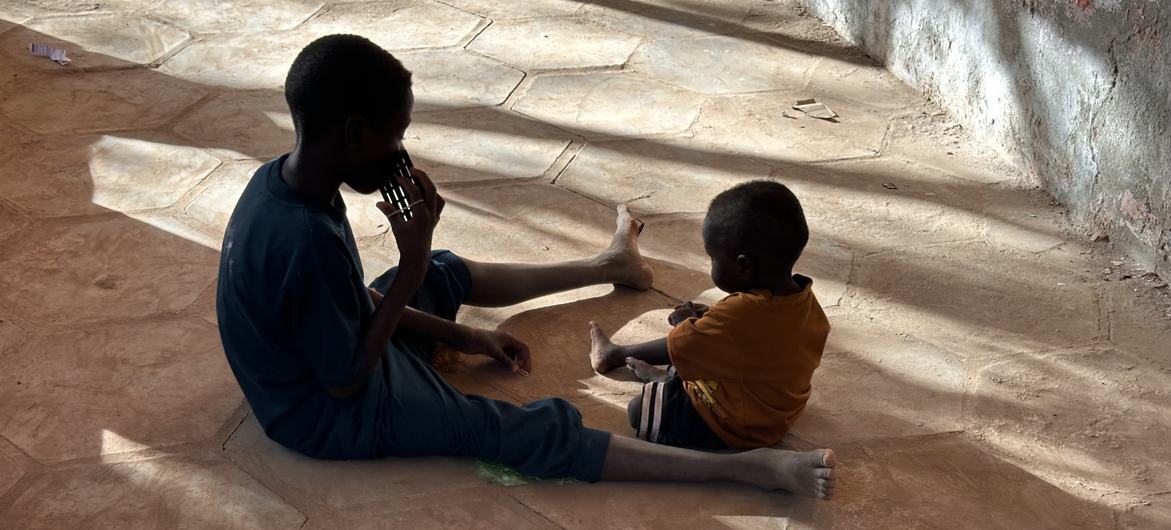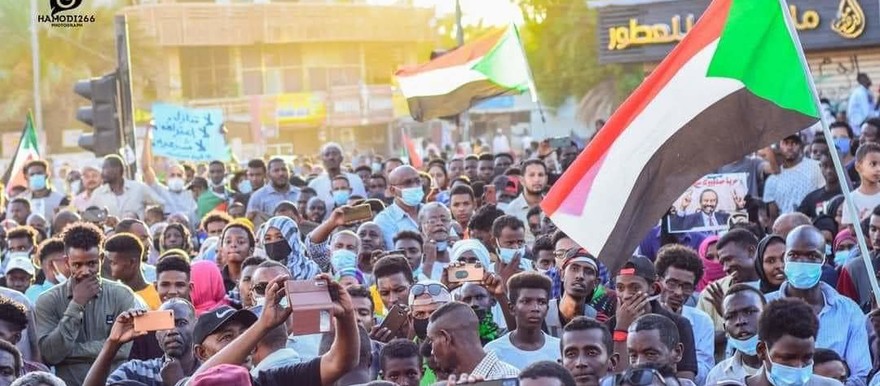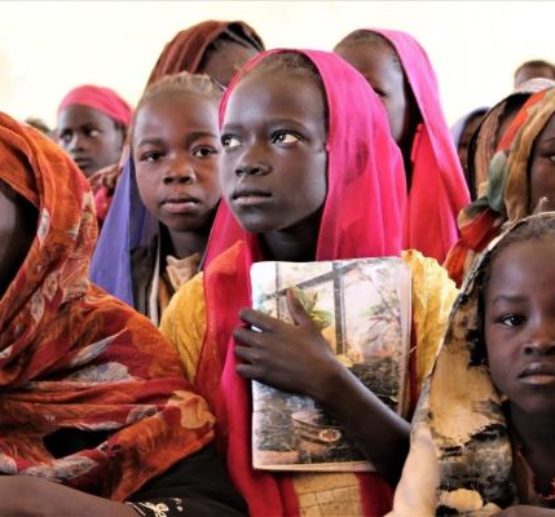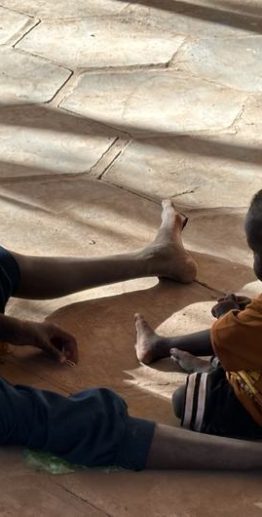July 17, 2025
Horror in Bara and a Death Trap in El Fasher: Recent Escalations in Sudan
In the past week, the ongoing atrocities in Sudan have intensified dramatically. Over the weekend, the Rapid Support Forces (RSF) massacred over 450 civilians in North Kordofan villages, near Bara. These villages had no military presence, confirming a deliberate campaign of ethnic slaughter targeting non-Arab civilians. This intensified fighting in the region of North Kordofan forced more than 3,000 people to flee, with no access to humanitarian aid, compounding the displacement crisis across the region.
As we receive reports of RSF forces mobilizing to launch an assault on El Obeid, the capital of North Kordofan, the danger to civilians escalates rapidly. Meanwhile, in El Fasher, RSF’s relentless siege and imposed starvation continues to trap and kill innocent people. also continues to be another center of fighting, and civilians continue to be targeted. These attacks show a coordinated, escalating effort to annihilate civilians through starvation, shelling, and displacement. Heavy floods now worsen famine and accelerate the spread of cholera, deepening the humanitarian catastrophe and killing many more in silence.
Horror in Bara
Over the weekend, RSF killed more than 450 civilians, including at least 24 boys, 11 girls, and two pregnant women, in and around the city of Bara in North Kordofan State. We fear that the actual death toll may be higher, with the number of people still reported missing while there is no reliable means of communication. This is a marked escalation of violence. Catherine Russell, Executive Director of UNICEF, condemned these atrocities, saying they show a “complete disregard for human life, international humanitarian law, and the most basic principles of humanity.”
The violence of these attacks was horrific. The RSF burned civilians alive in their homes, looted properties, slaughtered livestock, and buried victims in mass graves. These massacres targeted civilians in villages confirmed to be free of any military targets. These attacks were ethnically charged and criminal. Targeted villages include: Al-Kurdi, Shaq Al-Noum, Umm Dam Haj Ahmed, Shaq al-Num, Umm Nabq, Fuja, Jakowa, Mashqa, Jabrat Al-Sheikh, Bara, and Hilla Hamid.
Other Recent Atrocities and Escalations
On July 13th, the SAF launched an airstrike in Al-Fula, West Kordofan, on residential areas and markets. This attack killed 23 and wounded over 30 civilians. This was clear targeting of civilians and a clear violation of international humanitarian law. The same day, In Abu Zabad, West Kordofan, another SAF airstrike on shelters killed eight people, including three children. This attack targeted a displacement center, and is yet another flagrant violation of humanitarian law.
From July 14th-15th, heavy rains and flooding displaced more than 400 people and destroyed dozens of homes in North Darfur’s Dar As Salam locality. Displaced families now shelter with host communities, but urgently lack survival resources. The rainy season is worsening the humanitarian disaster, as DWAG has long warned.
On July 15th and 16th, the RSF siege of El Fasher continued with shelling that killed five children. RSF also murdered 6 people at the Naivasha market, inside the famine-stricken Abu Shouk displacement camp.
Women’s Health and Education in Crisis
Displaced women across West and South Kordofan report alarming rates of miscarriages, driven by malnutrition, lack of essential vaccines, and vitamin deficiencies. The health sector has collapsed entirely. Safiya Al-Ubaid, a resident, stated, “The situation has deteriorated to an unprecedented level after the Rapid Support Forces invaded the city. The health sector has collapsed as a result of looting and the displacement of medical personnel.”
Refugee Crises
To make matters worse, on July 15th, Ugandan authorities announced the suspension of processing dual citizenship applications for citizens of certain origins, including Sudanese, based on direct presidential directives. DWAG expresses concern about this new development. We greatly appreciate the Ugandan government and the people for welcoming Sudanese and we implore them to continue to protect Sudanese refugees fleeing genocide and understand that they deserve protection, not rejection.
In a Libyan refugee camp, the education crisis is clear. Sudanese children remain locked out of formal education due to documentation requirements and bureaucratic inflexibility. Entire generations risk losing their futures while the international system fails to adapt.
Escalating Famine, Malnutrition, and Public Health Collapse
On July 10th, UNICEF reported a 46% increase in children treated for severe acute malnutrition (SAM) in Darfur, compared to last year. East Darfur’s malnutrition rates are at 28%, dangerously close to the famine threshold of 30%. Children with SAM require immediate, intensive treatment or risk death. SAM cases increased by over 70% in North Kordofan, 174% in Khartoum, and 683% in Al Jazirah state. These statistics reflect not just neglect but orchestrated deprivation. These children’s lives depend on our actions.
At the same time, the cholera epidemic is surging. On July 13th, South Darfur State announced 8 new cholera cases and 1 death, bringing the total number of cases since May 27 to 374, and the total number of deaths to 29. In North Kordofan, one person died and 45 new cholera cases were recorded, bringing the number of cases to 89. The collapse of public health systems in Sudan means that cholera cases will continue to rise, unless urgent medical intervention arrives now.
DWAG’s Urgent Demands to the International Community
In the face of deepening atrocities and worsening humanitarian catastrophe, the international community bears responsibility and must step up effort to save lives. The systemic RSF attacks on civilians in Sudan, particularly in Darfur, are not isolated incidents. It’s a part of a long standing policy of deliberate attacks on innocent people based on their ethnicities and it must be stopped. These violations must be investigated and the perpetrators must be held accountable. The suffering of the people of Sudan has been allowed to go on for far too long. International institutions, especially UN agencies, must meet their obligations to deliver desperately needed humanitarian aid to reach all in need across Sudan. We must make it known that the people of Sudan face dire humanitarian conditions and an increasing deprivation of their most basic rights. We call on the international community to take the following actions:
- Authorize urgent and unimpeded access to humanitarian aid for all in need across Sudan;
- Swiftly authorize and deploy civilian protection forces to protect the innocent Sudanese people, particularly in Darfur;
- Press the warring parties to stop the torture, murder, rape, and starvation of civilians as a strategy of war;
- Demand that the warring parties to immediately cease all attacks and strictly adhere to a permanent, verifiable ceasefire;
- Impose criminal and financial accountability for all individuals and states complicit in committing past and present genocide and war crimes in Sudan;
- U.S., UNSC, and allies must hold the regional and international enablers supplying weapons to the warring parties in Sudan accountable;
- US and allies must cease the selling of arms to the UAE and prevent genocide in Sudan.
As this genocide intensifies, we issue this urgent plea to the global community: Act now! We demand justice. We demand protection. And we demand the world stop looking away.
Please join our Stand with Sudan campaign to take action, support the life saving effort and rally others to be a voice for the people of Sudan. The time to act is now.
With our collective effort we can ease the suffering, compel our leaders to act and hold those responsible accountable.
With Gratitude,
Niemat Ahmadi,
DWAG President
